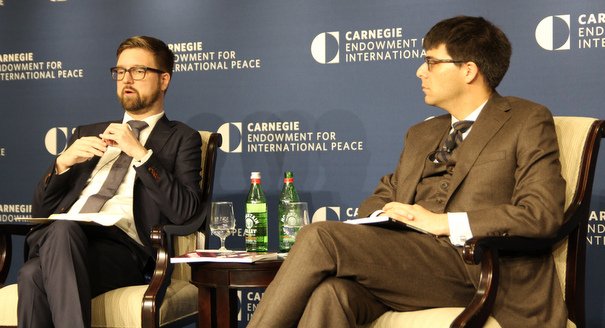Registration
You will receive an email confirming your registration.
In a conflict between Russia and NATO in the Baltic region, the risks of escalation leading to nuclear use—deliberately, inadvertently, or accidentally—would be dangerously high. In his new Carnegie report, Ulrich Kühn argues that in order to combat these risks effectively, NATO must address the full range of the potential threats posed by Russia, including behavior below the threshold of a nuclear—or even a conventional—conflict. To do so while remaining united, NATO must enhance deterrence against Russia while simultaneously pursuing resilience and risk-reduction measures. James Acton moderated the conversation.
Ulrich Kühn
Ulrich Kühn is a nonresident scholar with the Nuclear Policy Program at the Carnegie Endowment for International Peace and a senior research associate at the Vienna Center for Disarmament and Non-Proliferation.
James Acton
James Acton holds the Jessica T. Mathews Chair and is co-director of the Nuclear Policy Program and a senior fellow at the Carnegie Endowment for International Peace.
